
What Is Elderberry and Why Is Everyone Talking About It?
I remember the first time I heard someone mention elderberry like it was some kind of magic potion. I thought, “Wait… elder-what?” I’d seen the name printed on fancy-looking supplement bottles in the grocery store aisle, but I had no idea what it actually was. Fast forward a few years—and now here I am writing for a site called Elderberry Pro. Funny how life works.
So, what is elderberry and why is everyone talking about it these days? In simple terms, it’s a small dark berry with a long history and a reputation for packing a punch when it comes to immune support and natural wellness. But it’s more than just another trendy superfood. Elderberries have roots (literally and historically) that go way deeper than most people realize.
In this article, I’m going to walk you through everything I’ve learned—what elderberries are, what makes them so special, how they’re used, and why I became such a believer in them. If you’re curious about what elderberry really is and why it seems to be showing up everywhere, keep reading. This is the stuff I wish I’d known when I first got started.

What Exactly Is an Elderberry, Anyway?
Let’s clear something up: elderberries are real, actual berries—not some made-up herbal myth. They come from a flowering shrub in the Sambucus family, most commonly Sambucus nigra, also called black elderberry. These berries are small, deep purple, and grow in clusters that sort of look like tiny grapes on long stems.
The elderberry bush itself grows in many parts of the world, including Europe, North America, and even parts of Asia. In the U.S., it grows especially well in zones 3–9—yep, that’s a wide range, which is one reason it’s gaining popularity among backyard growers and small farms.
There are other types of elderberries too, like red and blue varieties, but black elderberry is the one you’ll see in most supplements and DIY recipes. That’s because it has the richest concentration of antioxidants and the strongest track record for health benefits.
What makes elderberries stand out, though, is their crazy-high concentration of anthocyanins, the antioxidant compounds that give them their dark color and immune-supporting power. I’ll be honest, I didn’t care about any of that stuff at first. I just wanted something that could help me stop getting sick every time the seasons changed. Once I dug into what elderberry really is and how it’s been used, I realized this tiny berry might actually live up to the hype.
Learn more about what exactly is an elderberry here!
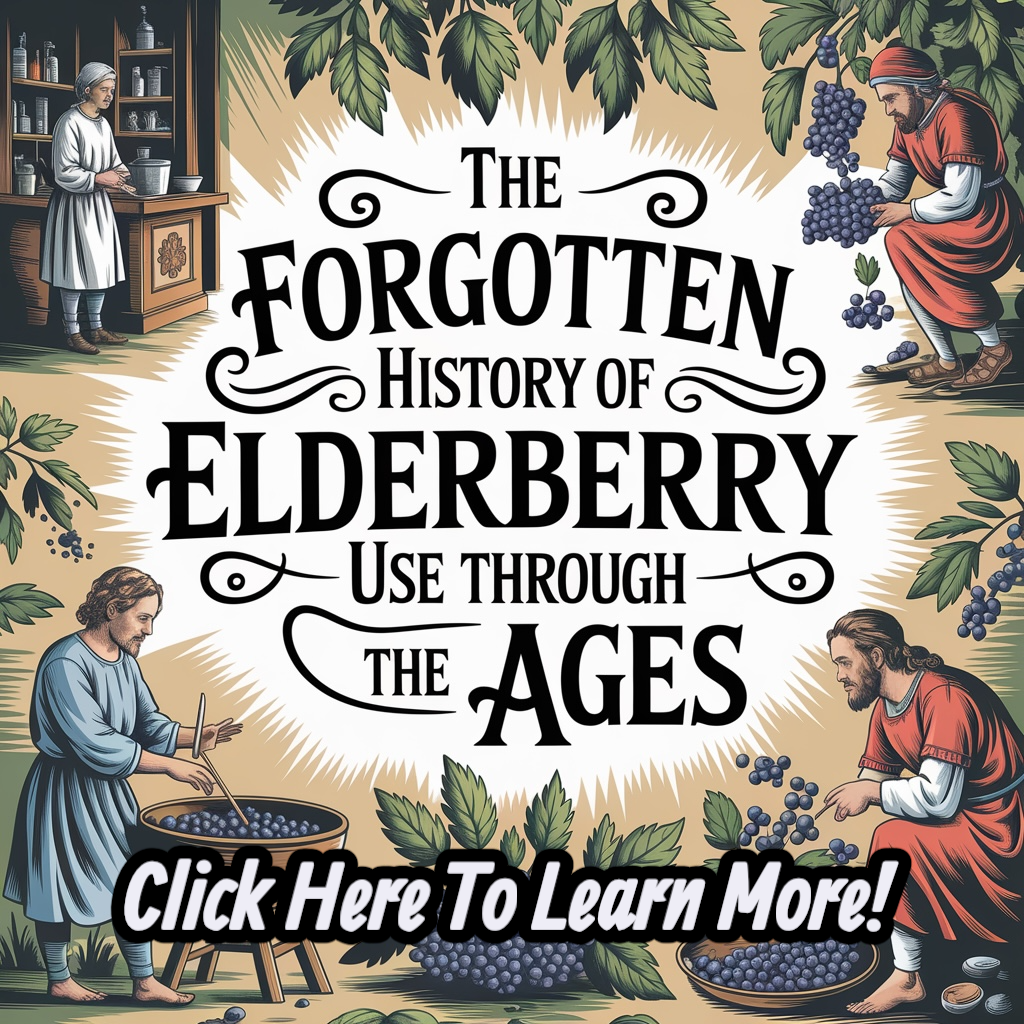
A Quick History of Elderberry Use
Elderberries aren’t new. Not even close. People have been using them for centuries, way before influencers started dropping elderberry gummies into their smoothie bowls on Instagram.
In Europe, elderberry syrup was a household staple during flu season. In fact, Hippocrates—the “father of medicine”—called the elder tree his “medicine chest.” Native American tribes used different parts of the elderberry plant to treat fevers, infections, and wounds. They didn’t have scientific studies, but they had experience. They knew this plant had something powerful going on.
What’s wild is that even with all that history, elderberry stayed under the radar for most Americans until the last couple decades. Then came the rise of natural health trends, the essential oil boom, and a whole wave of people (like me) looking for ways to take better care of their bodies without depending on over-the-counter everything.
That’s when elderberry started showing up in stores again—but this time in shiny glass bottles, organic syrups, chewable gummies, and trendy tea blends. The truth is, elderberry didn’t become powerful overnight… we just finally remembered it existed.T
You can learn more in depth about the history of elderberries on our article we created. Click here!

What Are Elderberries Used For Today?
Nowadays, elderberries are everywhere—and for good reason. People use them for way more than just cold season.
Here are the most common ways elderberries are used today:
- Immune support – This is the big one. Elderberry syrup is known for its role in reducing the duration and severity of colds and flu. That’s what pulled me in to begin with.
- Cooking and preserving – You can make elderberry jam, jelly, wine, tea, and even pie (yes, pie).
- DIY home remedies – Elderberry tinctures, syrups, and gummies are popular with homesteaders and natural wellness folks alike.
- Gardening – Believe it or not, people grow elderberry shrubs for their beauty, pollinator benefits, and even as a privacy hedge.
- Skin and wellness products – Elderberry extracts are showing up in natural skincare and wellness brands because of their antioxidant content.
I personally started with the syrup—bought it from a small shop—and then I eventually learned how to make it myself. That one habit alone changed the way I approached my family’s health in the fall and winter months.
It’s not some miracle cure, but it is one of those simple, old-school solutions that works if you’re consistent with it. And honestly? That’s probably why everyone’s talking about elderberries now.
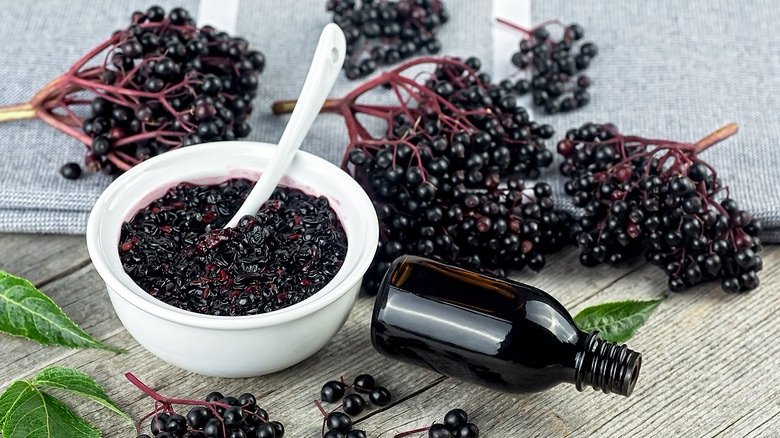
What Makes Elderberries So Powerful?
When I first started using elderberries, I honestly didn’t care about the science. I just wanted to stop catching every bug that passed through our house. But once I saw results, I got curious—and let me tell you, elderberries are nutritional powerhouses.
They’re loaded with antioxidants, especially anthocyanins, which are responsible for that deep purple color. Antioxidants help fight oxidative stress and inflammation in the body, which is one reason elderberries are linked to immune support.
But it’s not just anthocyanins. Elderberries also contain:
- Vitamin C – immune system booster
- Vitamin A – supports skin and vision
- Flavonoids – known for antiviral and anti-inflammatory properties
- Iron, potassium, and fiber – underrated but helpful
You don’t have to memorize any of that—just know that these little berries are stacked. I like to think of elderberries as nature’s version of a well-rounded multivitamin, but tastier and a lot more versatile.
It’s no wonder they’ve been used for generations to help people stay healthy during cold season. And no, they’re not a silver bullet—but when you use elderberries regularly, you can definitely feel the difference.
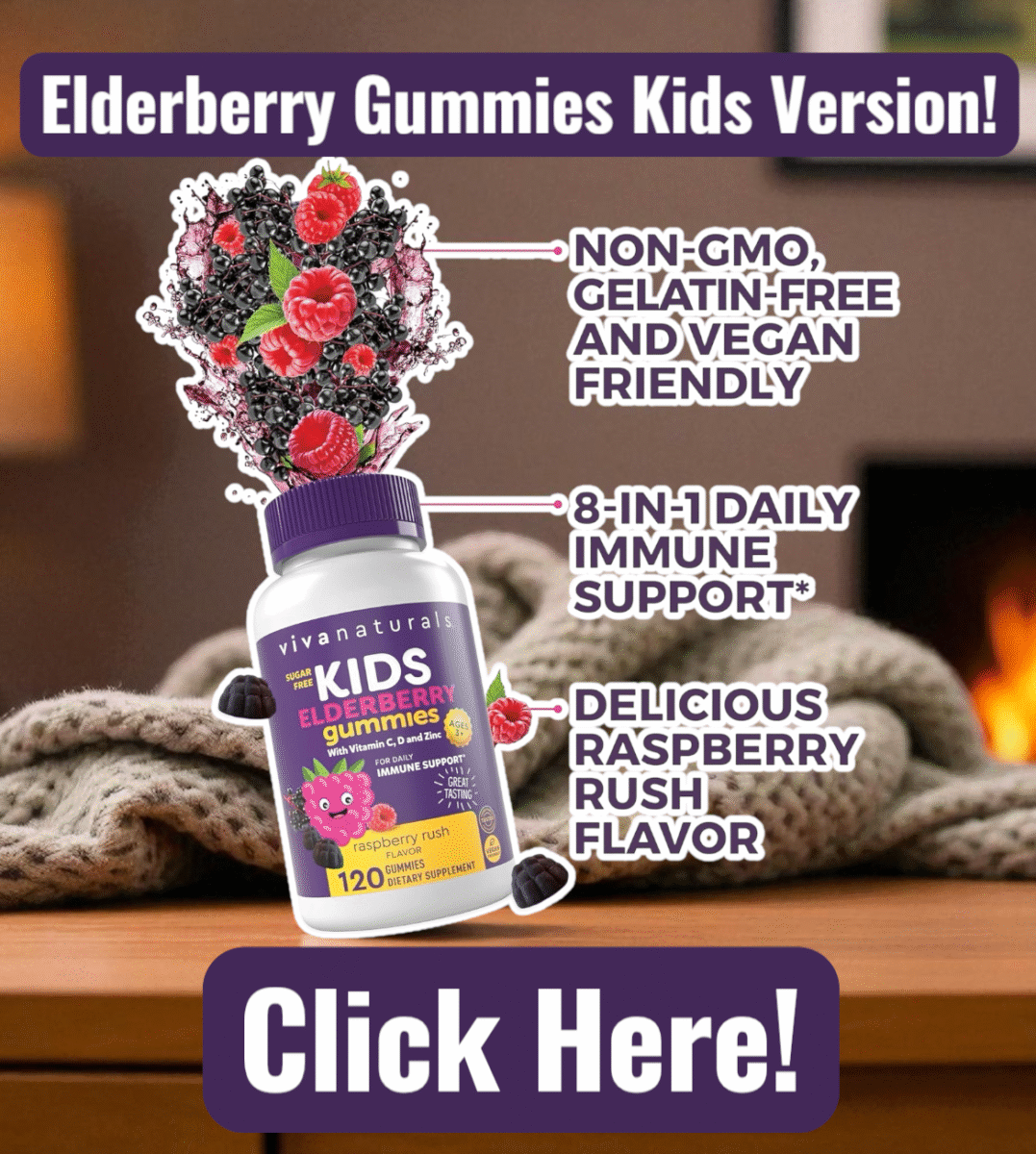
The Science Behind Elderberry Health Benefits
Let’s be honest: the internet is full of wild health claims. I’m not here to tell you elderberries are some magical cure-all. But there is some real science behind why people use them—especially when it comes to immune support.
One of the most cited studies (from 2001) found that people who took elderberry extract during flu season recovered faster—about 4 days sooner on average. A more recent meta-analysis in 2019 backed up those findings, showing elderberry supplementation can significantly reduce both the duration and severity of cold symptoms.
Researchers believe elderberries may help:
- Block the flu virus from attaching to cells
- Reduce inflammation
- Increase the production of certain immune cells
But here’s the thing: elderberry is still considered a supportive remedy, not a replacement for medicine. That’s why I always suggest using it alongside good sleep, nutrition, and hydration—not in place of them.
I use elderberry syrup the same way I use bone broth or herbal teas—part of a bigger toolkit that keeps me and my family feeling our best, especially in the colder months.
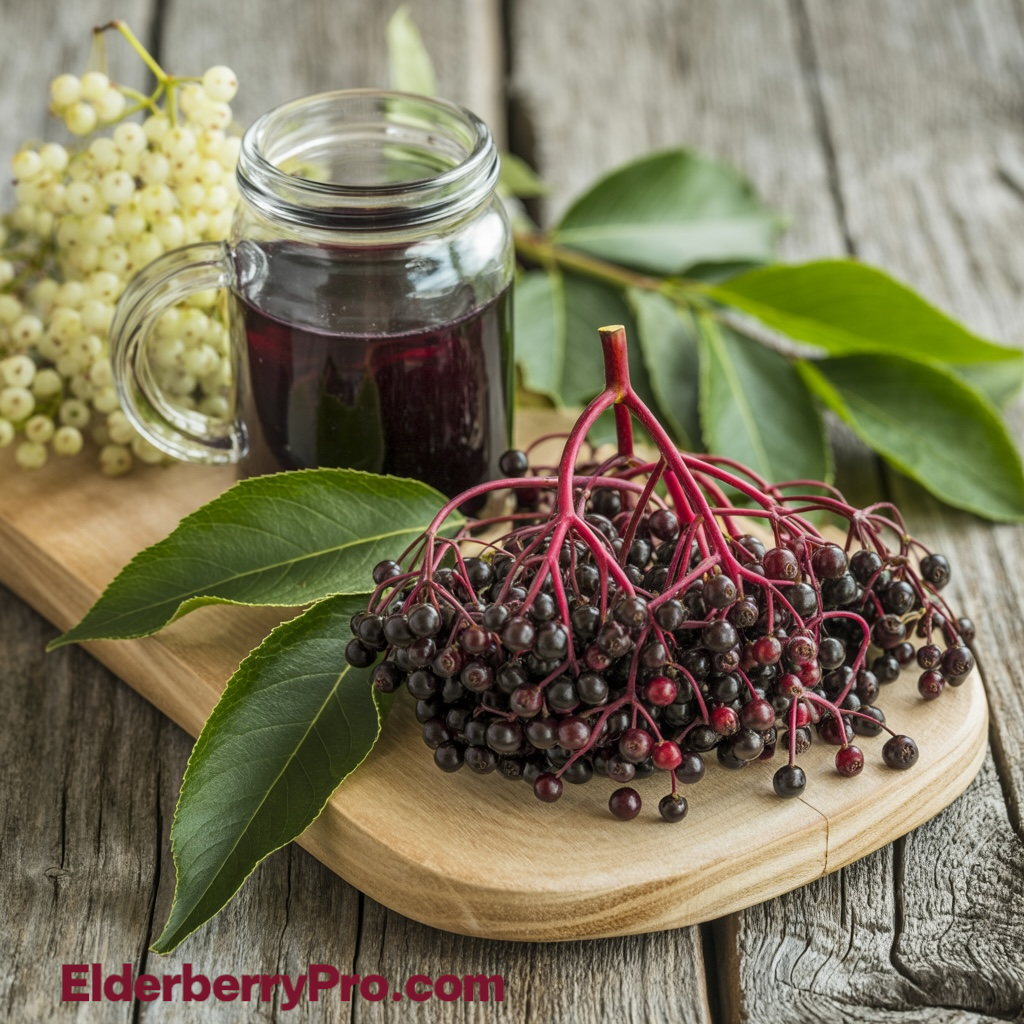
Is Elderberry Good for You… or Overhyped?
I’ll admit—I was skeptical at first. I thought elderberry was just another “superfood” riding a marketing wave. But after using it consistently for a few years, I can honestly say yes—elderberry is good for you, but only if you use it wisely and regularly.
For me, elderberry has:
- Helped shorten the length of colds
- Made me feel more resilient during flu season
- Become a go-to natural option I trust
But I also think it’s easy to get swept up in the hype. Elderberry won’t give you superpowers. It’s not going to protect you from every illness under the sun. And it definitely isn’t a substitute for healthy habits.
Where elderberry shines is in prevention and early support. If I start to feel a little off—scratchy throat, extra tired—I’ll reach for the elderberry syrup or gummies right away. And I swear, nine times out of ten, it helps keep things from getting worse.
So no, it’s not a miracle cure. But it is one of the few natural remedies I truly believe in—and that’s saying something in today’s world of sketchy health products.
How I Personally Use Elderberries
Let’s get practical. Here’s how I actually use elderberries in real life—not just the “ideal” version you see on Pinterest.
- Elderberry syrup – I keep a bottle in the fridge almost year-round. During cold and flu season, I take a spoonful a day. If I’m feeling something coming on, I’ll bump it up to 3x a day.
- Gummies – My backup for travel or when I’m short on time. They’re easier for kids too.
- Homemade syrup kits – I sometimes make my own syrup from dried elderberries, cinnamon, ginger, and honey. It tastes way better than store-bought.
- Tea – I steep dried elderberries with rose hips and chamomile. Super soothing.
- Freezer packs – When I have access to fresh elderberries, I freeze them so I can use them year-round.
Using elderberries doesn’t have to be complicated. Once you find a routine that works for you, it becomes second nature. And honestly, there’s something empowering about knowing how to use a natural remedy that’s been around for generations.

Elderberry Syrup vs Extract vs Gummies: What’s the Difference?
When I first started using elderberry, I remember standing in the supplement aisle thinking, “Why are there so many options?” Syrup, extract, gummies, lozenges, capsules—how do you even choose?
Here’s how I break it down:
1. Elderberry Syrup:
This is the most traditional and common form. It’s usually a cooked blend of elderberries, water, and a sweetener (often raw honey). You can buy it ready-made or make it at home. It’s my personal favorite because it feels closest to what people have used for generations.
2. Elderberry Extract (or tincture):
This is more concentrated and often alcohol-based. It has a longer shelf life and doesn’t contain sugar or honey, which is a plus if you’re diabetic or avoiding sweeteners. I keep a tincture bottle in my cabinet as a backup when syrup’s not available.
3. Gummies:
Super convenient, especially if you’re traveling or have picky kids. Most brands use extract or syrup and blend it into a chewable gummy form. I always check the ingredients—some are great, others are full of junk.
So which one is best?
Honestly, it depends on your lifestyle. I use syrup at home and keep a small bottle of extract or a pouch of elderberry gummies in my bag when I’m out and about. As long as you’re getting a quality product with real elderberry in it, you’re good.
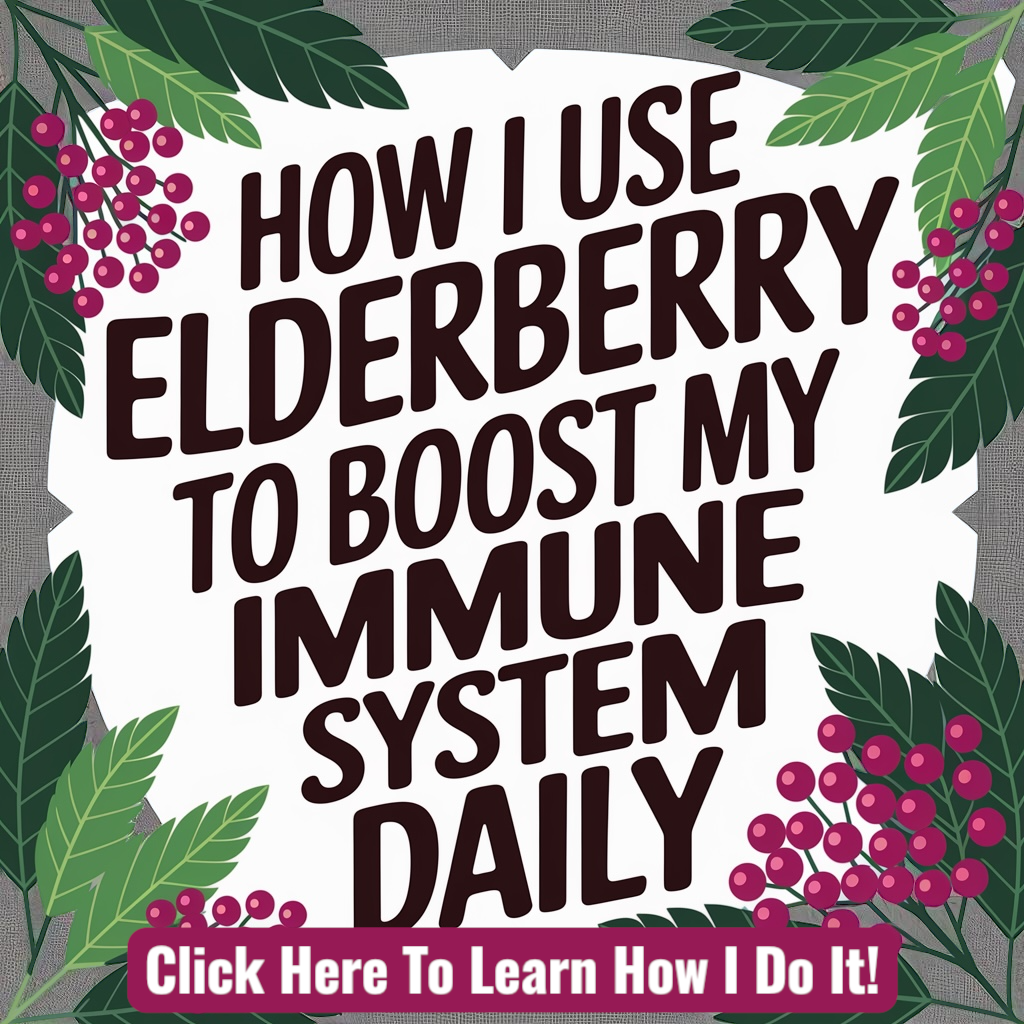
Can You Eat Raw Elderberries? (Spoiler: Please Don’t)
If there’s one thing I wish people knew before diving into elderberry use, it’s this: raw elderberries can make you sick.Like, stomach-cramping, head-to-the-toilet kind of sick.
Here’s why: elderberries (especially the stems, leaves, and unripe berries) contain a compound called cyanogenic glycosides. When consumed raw, these compounds can release cyanide in the body. Yikes.
Cooking the berries—like you would when making syrup or jam—breaks down those harmful compounds and makes elderberries safe to consume. Once cooked, they’re incredibly useful. But raw? That’s a no-go.
I learned this the hard way when a friend tried to throw fresh elderberries into a smoothie. Let’s just say it wasn’t a good day for him.
So if you’re ever working with elderberries you’ve picked yourself, always:
- Remove stems and leaves
- Only use fully ripe berries
- Cook before using—no exceptions

Are There Any Risks or Side Effects with Elderberry?
For most people, cooked elderberry products are very safe. But like anything you put in your body, it’s worth knowing the risks.
Here’s what to keep in mind:
- Stomach upset – Some people experience mild digestive issues, especially with high doses.
- Allergies – If you’re sensitive to berries or flowering plants, test with a small dose first.
- Autoimmune conditions – Since elderberries may stimulate the immune system, folks with autoimmune diseases should talk to a doctor first.
- Pregnancy/breastfeeding – There’s not enough research to say elderberry is 100% safe during pregnancy, so it’s best to avoid unless approved by your provider.
Also, steer clear of elderberry products with artificial colors, high-fructose corn syrup, or fillers. If you’re going to do elderberry, do it right—go for pure, clean, tested options.

Elderberry as a Superfood: Hype or Fact?
Let’s be real—the word “superfood” gets tossed around a lot. Kale, quinoa, goji berries, chia seeds… everything’s a superfood these days. But elderberry actually earns that title in my book.
Here’s why I think elderberries deserve a spot in your wellness routine:
- They have more antioxidants than blueberries or cranberries
- They contain a solid dose of vitamin C and flavonoids
- They’ve been used medicinally for thousands of years
- They’re versatile—you can cook, drink, blend, ferment, and even bake them
Plus, they’re one of the few “superfoods” that actually grow naturally in many parts of the U.S. You don’t need to import them from halfway across the globe. You can literally grow them in your backyard.
So is elderberry a trendy buzzword? Maybe. But it’s one of the few trends that’s actually grounded in tradition, research, and results. That’s why it’s stuck around—and why I trust it enough to use it regularly.
How to Start Using Elderberries (Without Overcomplicating It)
If you’re new to elderberries, I totally get how overwhelming it can feel. Syrups, tinctures, powders, gummies, dried berries—where do you even begin?
Here’s what I always tell people: start simple.
1. Try a basic elderberry syrup.
This is hands down the easiest way to start. You can either:
- Buy a premade syrup (just check the label for real ingredients)
- Or try a homemade recipe using dried elderberries, water, honey, and a few spices like cinnamon and clove
2. Test it for a few weeks.
Use it consistently during the season you tend to get sick the most. For me, that’s fall into early spring. I usually take one spoonful a day for maintenance, and bump that up to 2–3 times a day if I feel something coming on.
3. Try gummies if syrup’s not your thing.
They’re easy, tasty, and perfect for on-the-go immune support.
4. Explore teas or tinctures next.
If you enjoy herbal teas, adding dried elderberries to your infusions is a cozy way to get their benefits. Tinctures are great if you want something shelf-stable with no sugar.
You don’t have to go full herbalist to get started. Even a small habit with elderberry can make a difference over time. And once you see results, you’ll probably start wondering what else you can make with it—trust me, it becomes kind of addictive in a good way.
Why Elderberry Is More Than Just a Health Trend
I’ll be honest—when I first started taking elderberry, it felt like a wellness fad. But over time, it became something deeper than that.
For me, elderberry represents:
- A return to natural wellness—before pills were the only option
- A connection to generations of people who used plants instead of prescriptions
- A hands-on way to take care of myself and my family that feels intentional
- A reminder that nature really does give us some of the tools we need—if we’re willing to listen
Elderberry isn’t just something you take when you’re sick. It’s part of a mindset shift. When I started using it regularly, I started caring more about what I was eating, how I was sleeping, and how I was showing up for my health overall.
That’s why I started this site. Elderberry Pro isn’t about selling syrup or pretending I have all the answers—it’s about helping more people discover what this little berry can do and empowering them to use it wisely.

Where to Learn More About Elderberries
You don’t need to have a degree in herbalism to use elderberries—you just need the right information, a little curiosity, and the willingness to try something new.
Here are a few helpful places to keep learning:
- Want quick answers? Head to our Elderberry FAQ for the most common questions.
- Curious who runs this site? Check out the About Us page.
- Wondering if we earn from some of the links? Yep—we’re always honest about that. Read the Affiliate Disclaimerfor details.
- Got a question, feedback, or want to collaborate? Reach out here—just please don’t send spam.
Everything we publish here on ElderberryPro.com is based on real-world use, personal experience, and a goal of helping others make elderberry part of their everyday lives. No fluff, no nonsense—just practical, honest advice.

What Elderberry Means to Me
So… what is elderberry and why is everyone talking about it?
To me, elderberry is more than just a trending topic—it’s a natural way to take ownership of your health, connect with the wisdom of generations before us, and simplify wellness in a world full of complicated solutions.
It’s helped me feel stronger through the seasons, take fewer sick days, and trust that sometimes the old ways really do work.
Whether you’re using elderberries in syrup, sipping them in tea, or planting your first elderberry bush in the backyard, you’re tapping into something real. And in my book, that’s worth talking about.
As an Amazon Associate we earn from qualifying purchases through some links in our articles.